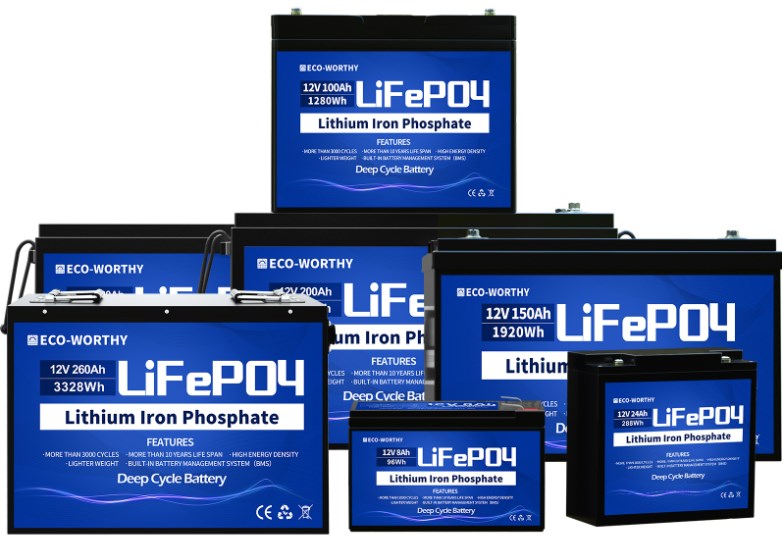The classification and application of different lithium batteries
May 11, 2023
Lithium batteries are a type of rechargeable battery that uses lithium ions as the primary component of their electrochemistry. They have become increasingly popular due to their high energy density, long cycle life, and low self-discharge rate. There are several types of lithium batteries, each with its own classification and application.
1. Lithium-ion (Li-ion) batteries:
These are the most common type of lithium batteries, used in a wide range of applications. They consist of a lithium cobalt oxide (LiCoO2) cathode, a graphite anode, and an electrolyte.
Applications:
- Consumer electronics (smartphones, laptops, tablets)
- Electric vehicles (EVs)
- Power tools
- Medical devices
- Renewable energy storage systems
2. Lithium iron phosphate (LiFePO4) batteries:
These batteries use lithium iron phosphate as the cathode material, offering a longer cycle life and better thermal stability compared to Li-ion batteries. They have a lower energy density but are considered safer due to their resistance to thermal runaway.
Applications:
- Electric vehicles (especially for commercial and heavy-duty applications)
- Solar energy storage systems
- Uninterruptible power supplies (UPS)
- Electric bikes and scooters
3. Lithium manganese oxide (LiMn2O4) batteries:
These batteries use a lithium manganese oxide cathode, which provides a high power output and good thermal stability. They have a lower energy density compared to Li-ion batteries but are more environmentally friendly.
Applications:
- Power tools
- Electric bikes and scooters
- Medical devices
- High-power applications
4. Lithium nickel manganese cobalt oxide (LiNiMnCoO2 or NMC) batteries:
These batteries use a combination of nickel, manganese, and cobalt as the cathode material, offering a high energy density and good thermal stability. They are widely used in electric vehicles and energy storage systems.
Applications:
- Electric vehicles
- Consumer electronics
- Renewable energy storage systems
- Power tools
5. Lithium titanate (Li4Ti5O12 or LTO) batteries:
These batteries use lithium titanate as the anode material, providing a high cycle life, fast charging capabilities, and excellent low-temperature performance. However, they have a lower energy density compared to other lithium batteries.
Applications:
- Electric buses and commercial vehicles
- Grid energy storage
- Emergency power systems
- High-power applications
In summary, different lithium batteries have unique characteristics that make them suitable for specific applications. Factors such as energy density, cycle life, thermal stability, and environmental impact play a crucial role in determining the most appropriate lithium battery type for a given application.
